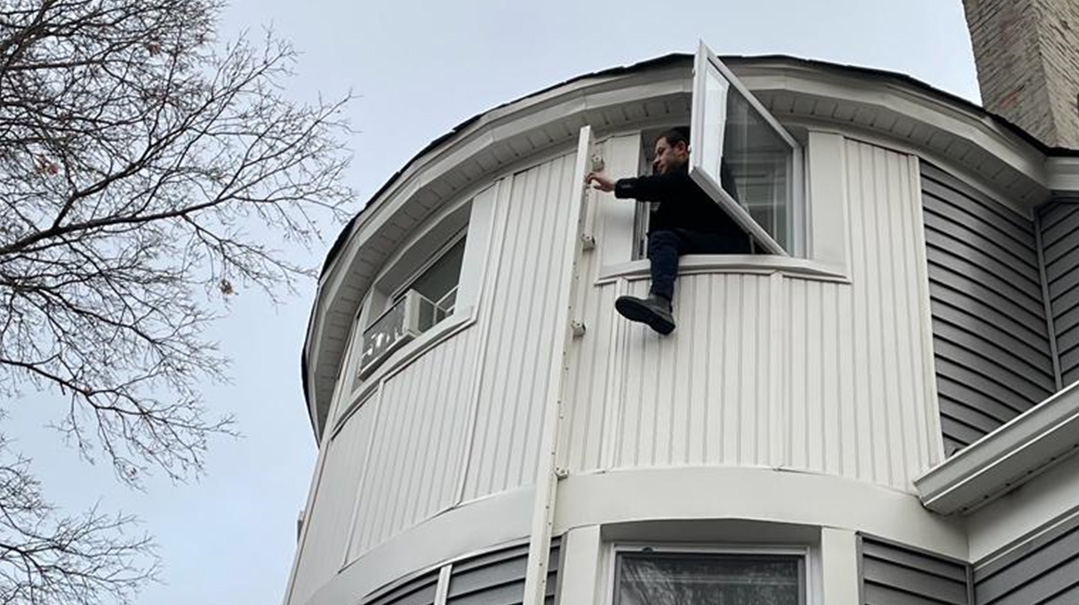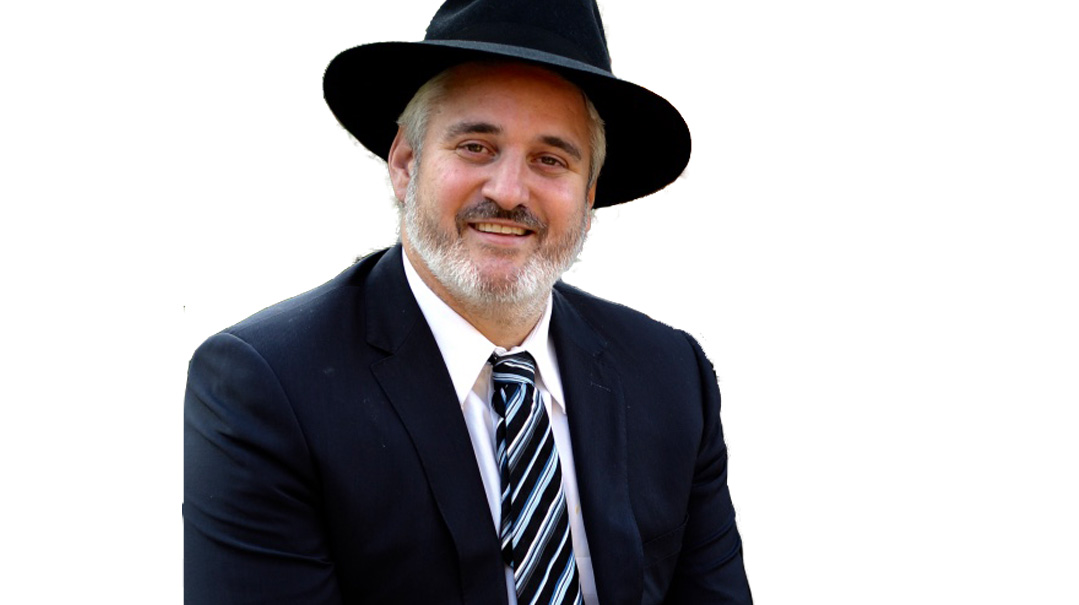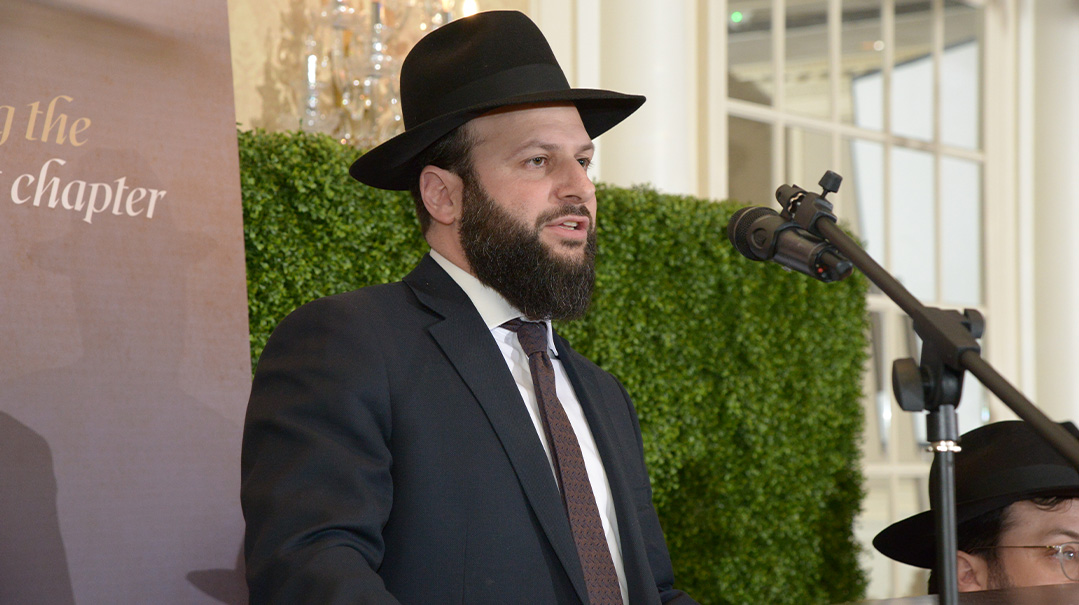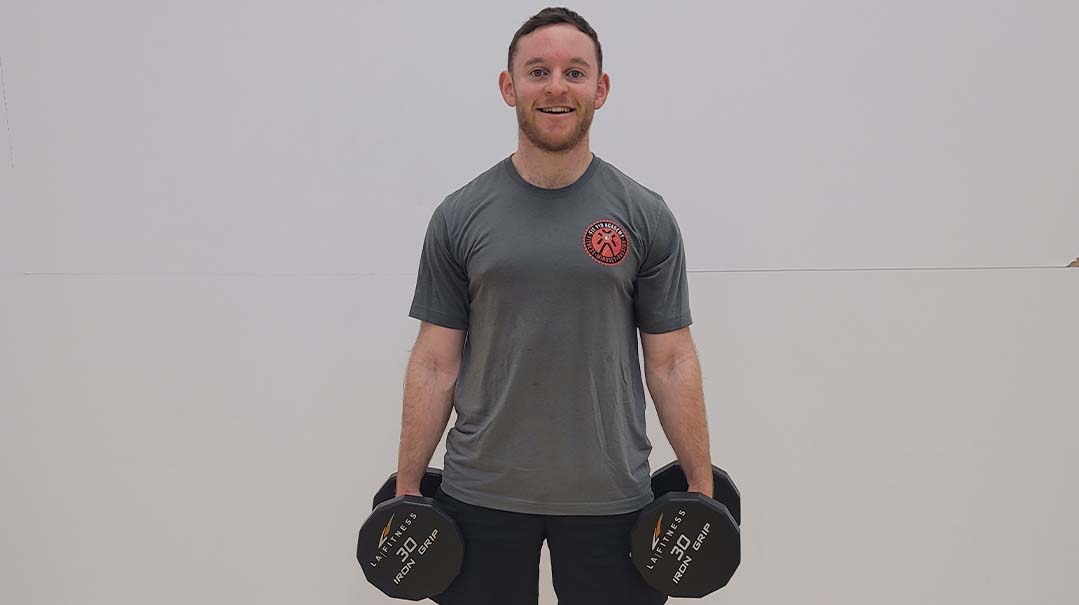Under the Wire


Y
onatan Frankel is the founder and CEO of the Nucleus intercom system. He lives in Philadelphia.
How did you come up with the idea for a wireless intercom system?
My wife and I were renovating a house in suburbanPhiladelphiain 2013 and we thought about putting in an intercom. We asked the contractor for a quote it came back at almost $5000 — and that was for an old ugly analog system. I googled “Wi-Fi intercom” and was shocked that such a thing didn’t exist. The more I thought about it the more I realized that combining Wi-Fi a wide-angle HD camera and a touchscreen would mean we could sell a better system at lower cost because there’s no need to hardwire the house. More importantly you could extend that intercom system anywhere in the world. Now using Nucleus my wife can call me upstairs in the office or her sister in Yerushalayim. We also have iOS and Android apps that turn your phones into remote intercom stations.
Aside from the obvious — parents keeping track of their kids — who’s your clientele?
My grandmother inToronto who doesn’t know how to use Skype uses Nucleus almost every day to call her kids grandkids and great-grandkids. My family uses it a lot on Erev Shabbos. Instead of phone calls we all just use Nucleus to say hello and good Shabbos to each other. The coolest customer we have is Joe Montana the Hall of Fame National Football League quarterback. He bought a couple and later ended up investing in the company.
Have you tweaked or upgraded the system in response to user request?
We try to correspond with all our customers to make sure they’re happy plus we’re learning about how they use the system and what additional features we can implement. One of the first tweaks we rolled out just a week after launching back in August was a software update that changed the way the screen dimmed based on the number of complaints we were getting.
What technical issues did you run into along the way and how did you solve them?
The technical challenges have been massive: With a tiny team we created what is essentially an instant Skype running on custom hardware. A Nucleus device can connect via video anywhere in the world in two-tenths of a second. Baruch Hashem Isaac Levy one of my co-founders is a leading WebRTC expert. WebRTC is the technology that underpins most video streaming and he was able to lead us through it. We also had a lot of Hashgachah pratis on the hardware side. Foxconn — the world’s largest manufacturer who usually works only with the likes of Apple and Dell — agreed to help develop our hardware and manufacture it for us. The way that came about took about 20 “coincidences ” including chance meetings on airplanes and at a yeshivah fundraising dinner culminating in a meeting inTaipei where they agreed to partner with us.
Are there specific skills you look for when hiring staff?
We have a team of over 30 now mostly inNew York but some inIsraeland some inMexico. When I hire senior people I’m looking for folks that are experts in their domain: self-starters that require very little direction; have the ability to debate vociferously but politely if they disagree with something; and are nice moral people who will be role models for the rest of the team. I then delegate almost all decisions in their respective areas of responsibility to them and try to be more of a thought partner than a manager as they go about executing.
How do you stay ahead of your competition?
Because people use Nucleus to stay in touch with remote family members it’s a naturally viral product. Say I have a Nucleus and I get my grandparents one so we can conference each other and then the other children and grandchildren get one so everyone can stay in touch. In addition we innovate continuously. For example we worked really closely with Amazon to integrate their voice-activated Alexa technology into Nucleus meaning that every Nucleus is essentially equivalent to an Amazon Echo. That adds a lot of value for our customers.
How can someone know if his idea has real market potential?
Research the idea ahead of time. Before I started I conducted online surveys and in-person interviews. I even created a fake website to see if people would order and I went to CES the major electronics trade show to see if there was competition and speak to others in the industry. Before you invest a lot of time and energy into an idea it pays to research it thoroughly.
What’s your best advice for aspiring inventors?
Just start! Being an entrepreneur is not for everyone but if Hashem gave you the skills and temperament to be a good lawyer accountant or salesperson you’re likely capable of starting a business. The kollel here inPhiladelphia has had numerous alumni that have started businesses without any formal training and baruch Hashem they’ve found success after a lot of hard work and effort. But first they had to take the leap.
Any tips for how to present a pitch?
Know your material cold and be extremely passionate about it. Have an organized pitch deck that tells your story that contains all the relevant information —not a drop more —and takes the form of a narrative. For example you can start by talking about a major new trend — ”Most new homeowners don’t bother paying for a home phone” — a problem caused by that trend and how your product offers a solution. Then support it with anecdotes statistics and a demo; that’s much better than just explaining what you’re selling. Most important be prepared to ignore the deck and work your story into a conversation — that’s much more effective. When we were raising money to fund production the first few times we pitched we walked prospective investors through the deck. We got all the information across but in a stilted unexciting way — and we had the empty bank account to prove it. Over time we got more comfortable talking about it naturally working important points into a conversation; eventually we didn’t turn past the first page of the deck. Instead we engaged investors in lively conversation which ended with better results.
What’s your biggest accomplishment?
One of our partners — a service provider who works with dozens of top hardware startups — told us they really enjoy working with us because we’re the most honest and polite team they work with. It’s nice to make a kiddush Hashem!
Oops! We could not locate your form.













